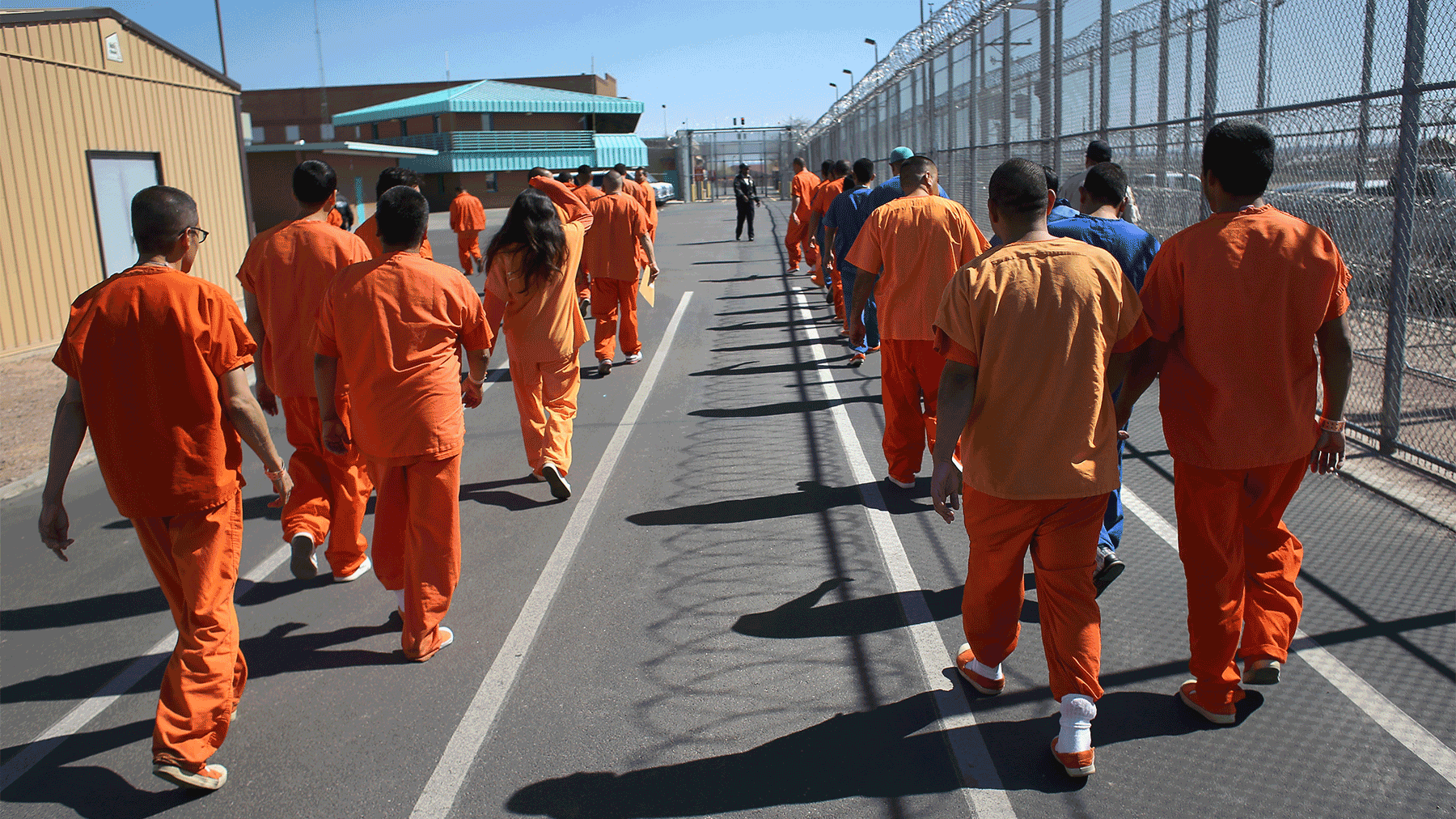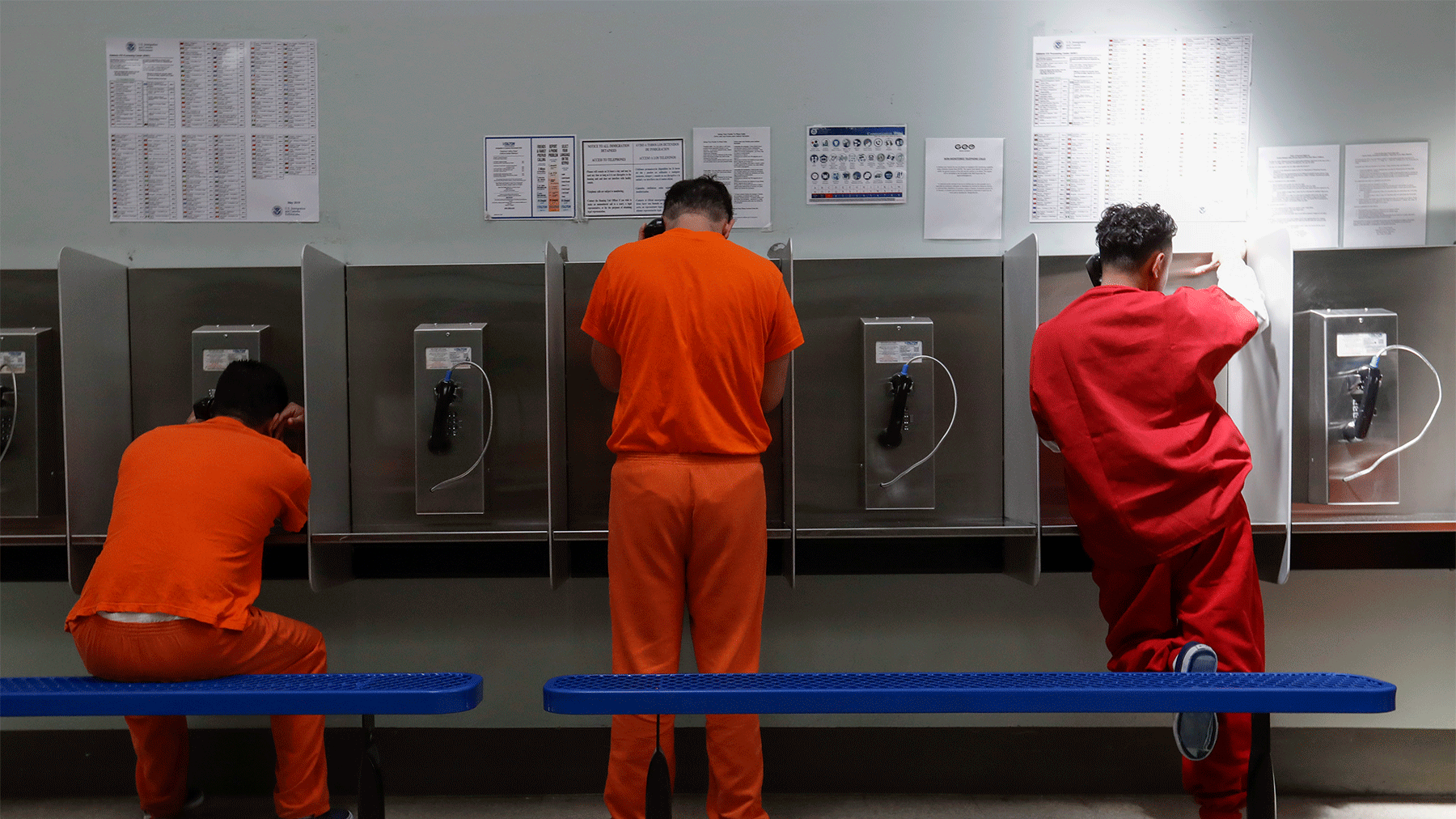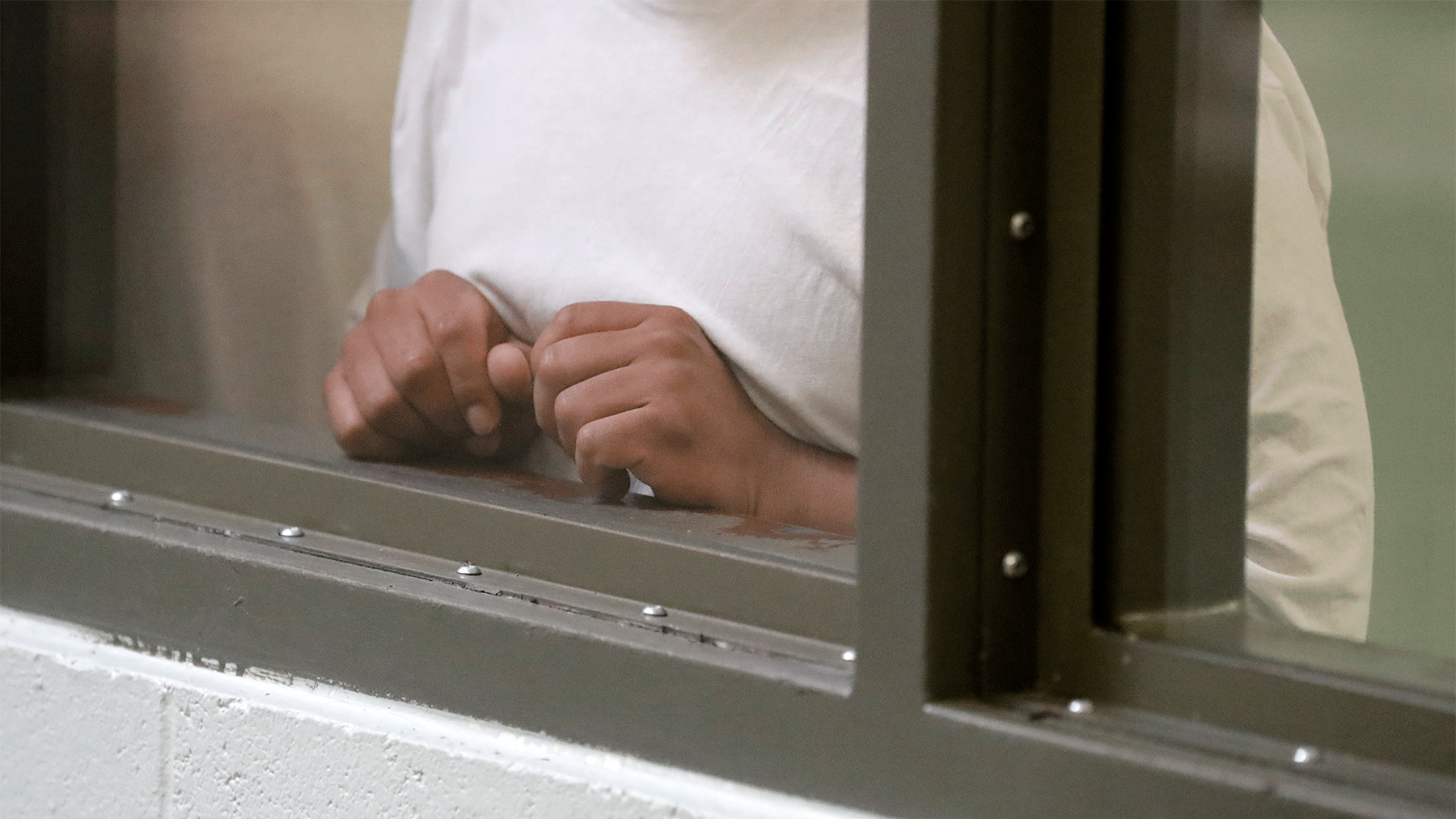FAQs about our parole lawsuit and the parole request process
1. What does the judge’s preliminary injunction mean?
On September 5, 2019, a federal judge ordered the New Orleans ICE Field Office to comply with an existing ICE policy rule, the 2009 Parole Directive, which sets out the process for granting parole requests. The order also provided additional framework for ensuring that ICE complied with the Parole Directive. First, the judge ordered ICE to provide all detained persons a notice of their right to seek parole in a language they understand. Second, ICE must provide detained individuals an opportunity to submit evidence in support of parole requests. Third, ICE must consider that evidence and decide whether to grant parole. The judge further ordered that the decision to grant or deny parole must be based on the following factors:
- Identity: Is the parole applicant who they say they are?
- Flight Risk: Has the individual provided sufficient reason to believe that if released, they will comply with their obligation to attend all court hearings in their immigration case and not disappear?
- Danger to Community: Has the individual demonstrated that if released, they do not pose a danger to the community?
The judge also granted SPLC and ACLU of Louisiana’s motion for class certification on September 5, 2019. When a judge certifies a class, their decisions in the case apply not only to the plaintiffs named in the suit, but to a broader number of class members. This enables lawsuits to benefit greater numbers of people subject to the same harms suffered by the plaintiffs. In this case, the judge provisionally certified a class for the purpose of applying the preliminary injunction, meaning that all class members are eligible for parole determinations following the rules outlined above. The judge allowed SPLC and the ACLU of Louisiana to represent all class members for the purposes of this lawsuit.
However, SPLC and ACLU of Louisiana do not represent every class member in their individual parole application. Andclass members have the right to opt-out of the class.
2. Who is part of the class? Who is eligible for potential relief under this lawsuit?
The class is composed of individuals who meet all of the following conditions:
- Currently in the custody of the New Orleans ICE Field Office, meaning they are detained by ICE in Louisiana, Mississippi, Alabama, Arkansas, or Tennessee;
- Became detained immediately after presenting themselves at a port of entry at the U.S. border and asking for asylum;
- Passed a credible fear interview, AND;
- Do not have a final order of removal.
3. What about detained individuals who had their appeals denied by the Board of Immigration Appeals (BIA)? Does this lawsuit help them?
Unfortunately, individuals whose appeals were denied by the BIA are not included in the class, subject to very limited exceptions. Therefore, the judge’s orders do not apply to them.
If an individual chooses to appeal their asylum denial to the BIA, the BIA may sustain the appeal, passing it back to the Immigration Judge. If the BIA sustains the appeal, the individual remains eligible for parole so long as ICE continues to detain them.
The BIA may also deny the appeal. If the BIA denies the appeal, that person has a final removal order and may be deported from the United States.
If, however, an individual is still in the process of appealing their asylum decision to the BIA and has not yet received a response from the BIA, their order of removal is not final, and they may parole. Please note that ICE may consider the initial denial by an Immigration Judge to increase their risk of flight.
4. How can I stop my loved one’s deportation after the BIA denies their appeal?
You have a few options, but please understand that none guarantee that your loved one will not be deported:
1. You may appeal the BIA’s decision to a U.S. Circuit Court of Appeals via a Petition for Review and seek a stay of removal from the Circuit Court. Stays are difficult to win.
2. You may also seek a stay of removal from ICE using Form I-246. You may be required to present your passport or other travel document and pay a fee. Again, stays are very hard to win.
3. Finally, you may be eligible to ask the BIA or the immigration court to reopen the case within 90 days of the BIA’s decision. Not every case is eligible for reopening; generally, a case may be eligible for reopening in any one of these scenarios:
- There has been a material change in your home country’s conditions (e.g., a change in the law, reports of government officials committing abuses against a group you belong to, etc.) such that your claim for asylum is different or stronger than when you originally presented your case before the Immigration Judge.
- You received ineffective assistance of counsel that materially affected your asylum case and you took actions to notify the attorney and/or file a formal complaint against the attorney.
- Significant changes after the removal order was issued, either in your case or in the law, which would show that you are no longer removable in the way the government charged on the NTA.
- There is evidence that was not previously available during the course of your case that is now available and would likely change the Immigration Judge’s decision.
For more information about motions to reconsider and motions to reopen, please see this guide from the American Immigration Council. We recommend that you consult with an immigration attorney about your individual case. Please be aware that a failure to cooperate in the deportation process can result in criminal prosecution.
5. Why can’t the lawsuit be amended to include the rest of the people who remain detained without due process but are not in the class?
We share in your sadness and frustration that not every detained individual is eligible for relief under this particular lawsuit. We recognize that the relief available with this lawsuit is limited to persons who qualify for parole under the 2009 Parole Directive and that there are many people who are confined against their will and deserve a chance for release yet are not part of the class in this lawsuit.
The government detains individuals subject to several different laws and rules that apply at different stages of a person’s immigration case. Specifically, different laws and rules govern detention for persons before and after they receive a final order of removal. The rule enforced in this case is the 2009 Parole Directive, a rule that Homeland Security created to apply only to certain people. Under this directive, the government has long taken the position that people with final orders of removal do not qualify for release on parole. We hope, however, that you too share in our belief that it is better to help some rather than none, and that the fight for justice for your detained loved ones certainly does not end here.
6. How long will this lawsuit take to resolve?
The government continues to ignore the 2009 Parole Directive and refuses to honor the judge’s September 5 order. We are fighting to change ICE’s process but are unable to provide an estimated length of time on the legal case and its implementation. We deeply regret that we are unable to make the process quicker and more responsive to the needs of this large class of people harmed by ICE’s practices.
7. If I apply for parole now, will I get it?
We cannot decisively predict if your individual parole application will be granted by ICE. However, the New Orleans ICE Field Office has been ordered to consider parole decisions as written in their own 2009 Parole Directive. Though we hope they comprehend the seriousness and severity of the court order, we cannot predict just how ICE will respond. Unfortunately, we have not yet noticed an increase in the office’s 1% parole grant rate.
8. If I already requested parole but was denied, do I need to submit a new application?
Because we do not know exactly how ICE is going to approach this process, we encourage you to resubmit your request for parole.
9. Where can I go for information on how to request parole?
Please visit our parole webinar resource, [link to webinar page] where you can watch our instructional webinar . [link to parole guide page] If you have any additional questions, you may call our Parole Hotline number at 833-907-1214 from 9:00 am to 4:00 pm (Central Time Zone), Tuesdays through Fridays, except holidays. As we have a high call volume, we appreciate your patience.
10. How long should we expect to wait for an interview to be scheduled?
Unfortunately, we cannot say how long we expect detained individuals to wait before receiving a parole interview because ICE has not been adhering to their protocol, explained in the 2009 Parole Directive. This policy says that parole interviews should occur “as soon as practicable,” but ICE has often not complied with this policy.
11. Does anything within the parole request need to be notarized?
Letters of support should be notarized. Additionally, remember to provide certificates of translation for any documents that have been translated into English. We encourage you to include the original letter of support, the translated version, and the translation certification.
12. Does the detained individual need to sign anything in their parole application?
Unless the detained individual is submitting a letter to ICE as part of the parole request, there is no parole requirement that the parole request must include a signature from the detained individual.
The sponsor writing the Letter of Support, however, does need to include their signature as part of the letter, in addition to identification and proof of lawful status in the United States.
13. As a sponsor, do I need both mine and the detained person’s passport? What happens if someone doesn’t have one?
Please visit the Parole Checklist in our Parole Informational Guide, which explains possible documents to submit to prove the identity of the detained individual.
Alongside the letter of support, sponsors should submit proof of residence AND proof of legal immigration status in Immigration status can be shown by providing a copy of their U.S. Passport OR a copy of their Green Card OR a copy of their Certificate of Naturalization OR a copy of their U.S. Birth Certificate.
14. Should I discuss the persecution in my sponsor letter?
Persecution generally falls outside the scope of ICE’s parole review process. ICE is namely concerned with determining that:
- You are who you say you are;
- You are not a threat to public safety, AND;
- You are not a flight risk.
ICE also considers other factors like serious illness of the detained person or their dependent or family member. Unless discussing your persecution is relevant to explaining a medical condition or why you meet the above three criteria, it is not advisable to discuss your persecution in-depth within your parole application. Instead, focus more on showing how you are not a threat to public safety and how you are not a flight risk.
15. Should I send originals or copies of my documents?
You should never mail original documents of any kind. You should mail clear copies of all the requisite documents and keep originals in a safe, secure place.
16. Should you submit your parole request to SPLC?
No. SPLC cannot make any parole decisions. Applications must be submitted to the detained person’s ICE Deportation Officer (DO). However, you may send SPLC a copy of your application to keep us informed and improve our records of paroles submitted in the region.
17. Do I need to mail a copy of the parole request to the parole applicant?
Yes. We recommend that you:
- Keep the original for yourself;
- Mail a copy to the detained individual;
- Mail or fax a copy to the Deportation Officer (or have the detained person present a copy to their DO in person), AND;
- Mail a copy to the New Orleans ICE Field Office Director at the following address:
William P. Joyce
U.S. Customs and Immigration Enforcement
1250 Poydras St., Suite 325
New Orleans, LA 70113
We also recommend you keep receipts, confirmations and/or tracking information for any requests mailed or faxed.
18. How do I identify the assigned Deportation Officer (DO)?
ICE is supposed to be transparent about the individuals to whom Deportation Officers are assigned. However, we have observed that this is not always the case.
We recommend that the detained person look for any lists posted within the detention center explaining the DO assignments and/or ask ICE agents at the center the name of their DO. Family, friends, and advocates can help by calling the New Orleans ICE Field Office at (504) 599-7800 and writing to [email protected]. Receiving a response may require persistence.
If you are unable to identify your DO after taking these steps, please call the Parole Hotline at (833) 907-1214 from 9:00 am to 4:00 pm (Central Time Zone), Tuesdays through Fridays, except holidays.
19. How do I check the status of a parole request or confirm that it has been received?
ICE agents are supposed to provide the detained person with a Parole Advisal and Scheduling Notification as a receipt of the parole request. We are uncertain about whether ICE is following this process.
20. What can I do to not get deported while I await a parole decision or after my parole request has been denied?
A pending parole request does not prevent ICE from deporting a detained individual. Individuals are subject to deportation once they have a final order of removal and no intervening relief available, such as a stay of removal. We therefore recommend that while detained, you dedicate your efforts to fighting your asylum claim and any other relief for which you are eligible.
Photo by John Moore/Getty Images




